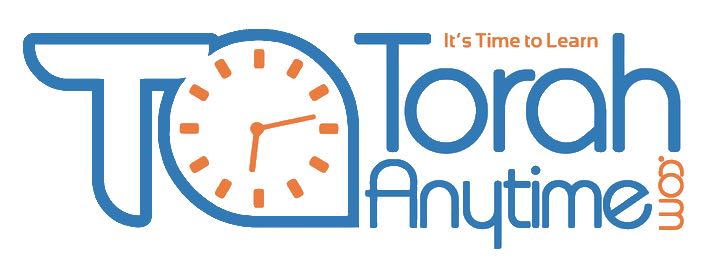The Four Sons Part 2 - the Chacham
/“What does the wise son say?
What are the remembrances, statutes, and laws that Hashem, our God, has commanded you?”
In our last article, we discussed the idea of preparing ourselves as parents to perform the mitzva of סיפור יציאת מצרים at our Pesach Seder. The Baal HaHagadda tells us כנגד ארבעה בנים דברה תורה, that there are four different types of children, each with his own question. The questions they ask reveal much about who they are as people, and therefore we need to understand the questioner, in order to answer the question.
The first child discussed is the chacham. Let's see how the Haggada describes him through his question.
The Wise Son
?חכם, מה הוא אומר? מה העדות והחקים והמשפטים אשר צוה ה' אלוקינו אתכם
His question may seem misleading to someone who does not appreciate who is asking the question. The chacham says, "What are the remembrances and the statutes and the laws that Hashem our G-d commanded you?" In the question that is asked by the Rasha, the wicked son, we conclude he is wicked because he says "what is this service to you" thus excluding himself. Yet the chacham does the same thing, asking, "what are all these laws to you?"
Here is where a michanech needs skill to differentiate between two children apparently saying the same thing. For while it's true that the Chacham says "you," he also says "Hashem our G-d." He believes himself to be a part of the people Israel; he just might not be able to personally relate to the particular situation right now.
Intelligent children with questioning minds sometimes encounter difficulties. To those who don't listen closely, they may sound like the rasha. Their questions are stated strongly; their intellectual curiosity is searching for the depths of Torah. "How can that be!" they exclaim in a way that makes some teachers shudder. "But that doesn't make any sense!" their untrained minds call out. How can we help the chacham find his answers without being called a problem, or worse?
What Teachers Should Not Do
A teacher in a girls school in the New York area told me about a ninth grade girl who questioned one of the fundamentals of Torah. The question wasn't particularly difficult, nothing that hadn't already been dealt with by the Chazal and the Rishonim. But this Rav was incensed. "Kefira!" he cried. "We have a koferes (heretic) in our school! I will not tolerate such questions!" and went to the office to complain how such a girl could be allowed to remain in the school. The teacher wanted to know what I thought. I told her I thought the Rav should consider a different profession. A koferes? A fourteen-year-old koferes? Quite an accomplishment.
Consider the seventh grader here in Yerushalayim, from a fine family, and whose father is a prominent Rosh Yeshiva. She was disturbed how Moshe Rabbeynu could kill the Mitzri. After all, she asked, isn't it murder, even if he did use the shem hamiforesh? The teacher looked at her with a shocked expression and then said, "bnos, close your chumashim. We cannot continue to learn because of the Ruach hatumah in the room from that question." She then had the girls take out their sifrei Tehillim and say tehillim until the end of the class.
That girl was lucky. Her father reassured her that she was a good girl and then did what the teacher should have done - answered her question. She wasn't fighting, she was curious. Parents of intelligent children find that some teachers love them, and some teachers can't tolerate them. Some love the piercing, intelligent questions, others find them challenging and disturbing.
So what is the answer we give to our chacham, our intelligent child seeking emes? The Baal HaHaggada says, teach him hilchos Pesach. Specifically, that you can't eat anything after the korben Pesach. Now why is that the best answer to give him? Some meforshim understand it to mean that you should tell him everything - right down to the last detail. Don't leave out anything, in keeping with the Chazal: "when they are young, stuff them like an ox."
The Taste of Torah
There is another idea: show him that the taste of Torah has to always be in our mouths. Hilchos Pesach are hard; they aren't interesting stories. You have to have intelligence, and through the depth of Torah, you will fulfill all your intellectual cravings. And the taste will stay in your mouth forever, so you won't need any "dessert."
“No class is homogeneous”
There is a problem in education that every teacher must face. No class is homogeneous. Most of the students in the class will be of average intelligence and ability. Then there will be a minority of bright or gifted children at the top of the class and a group of weaker students at the bottom. Teachers must, of course, teach to the majority of the class, but in the process, they will leave some bored and others overwhelmed.
This question came up recently when I was addressing a group of teachers on the subject of motivating students. What, they asked, can be done with the children at either extreme? The challenge, of course, is to spend a certain amount of time during the class for each group. It's important to give the more gifted students something "extra." "Oh, like extra assignments?"
Chachomim in Our Classrooms
I am always amazed that the most common response to finding a way to intellectually stimulate a gifted student is with extra work. There is probably no better way to encourage a child to act dumb than to threaten him with extra work, if he dares to be too bright. My suggestion was perhaps more innocuous. Every now and then, throw out an idea that you know to be beyond the grasp of the average students, but is meant as a treat for those who find the regular material too simple. Assure the other students that this is not required, just an interesting point for those who catch it. Don't dwell on it, just let the brighter students know that you remember them and appreciate them. This has the extra benefit of letting the average student know that there is even more to this Torah than you are revealing in class. We'll discuss the lower echelon of the class in future articles.
Perhaps we should also exempt the brighter students from certain work that we know they know, either substituting it for a more challenging assignment or appointing them to use the time tutoring one of the weaker students. But those who can, should be encouraged to push themselves academically to achieve their full potential. From the first halacha of korben Pesach to the end - leave them with the taste of Torah lingering in their mouths.
There was a fellow who once approached Reb Moshe Solovechik and told him, "I curse your father Reb Chaim every day." "Why?" Reb Moshe asked, taken aback. The man explained, "I work in a lab for Albert Einstein; I don't want to believe in this Torah anymore, but your father filled me with a such a love for the brilliance of Torah, that I just can't stop learning." Someone who learns Torah, as the Ramchal explains in Derech Hashem and Mesillas Yesharim, even if he doesn't keep mitzvos, will ultimately find his way back to HaKadosh Boruch Hu.
“I don’t want to believe in this Torah anymore, but your father filled me with a such a love for the brilliance of Torah, that I just can’t stop learning”
Don't soft-pedal gifted children. Appreciate their gift and help them develop it, so that as parents, we can all enjoy their greatness. I was learning Navi with my son one Shabbos morning, when he was only eight, and he said over an idea he heard from his Rebbi. I told him I never heard that pshat. He looked at me horrorstricken "But you're an Abba!" he exclaimed."Yaakov," I told him, "I didn't grow up in a cheder in Yerushalayim. There's nothing that will give me more pleasure than seeing you pass me by in Torah learning. And one day I hope to sit in your yeshiva and listen to your shiurim."
Let's help the future chachamim develop their abilities for themselves and all of Klal Yisroel.
Conclusion
By now every Jewish home is in the midst of the Pesach preparations. In this series of articles I want to encourage parents to prepare for the actual telling of the story of Yetziat Mitzraim. It will be a real tragedy if our children sit at our Seder table waiting for us to take them back in time to that glorious night in Mitzraim and we are unprepared because we have spent too much time cleaning under the aluminum siding.
And so the Baal Hahaggada tells us, keneged arba'a banim dibra Torah, there are four types of children, each with his own question. At the Seder we have to answer not only the question, but the questioner as well.
[A version of this article originally appeared on Chazaq.org]
Illustrations adapted from the Katz Haggadah © 2017 Rabbi Baruch Chait & Gadi Pollack. May not be reproduced in any form. Used with permission.
The Fours Sons Series
This series is available as an ebook






